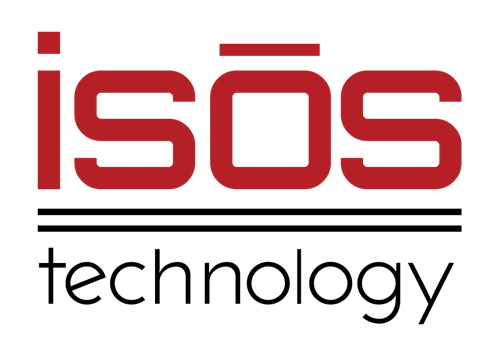 While most companies are still figuring out how to apply large language models (LLMs) like OpenAI, Claude, or Hugging Face, a quieter challenge is emerging behind the scenes: managing how teams access and use these tools—safely, consistently, and at scale.
While most companies are still figuring out how to apply large language models (LLMs) like OpenAI, Claude, or Hugging Face, a quieter challenge is emerging behind the scenes: managing how teams access and use these tools—safely, consistently, and at scale.
At Isos Technology, we saw this coming early. As we embedded AI into internal workflows—from Atlassian Intelligence and GPTs to orchestration via Rovo and n8n—we realized something important:
AI API sprawl wasn’t a future problem. It was happening already.
So, we built a centralized, policy-driven framework to manage AI API tokens across the company. And now, we’re helping clients do the same.
The problem: Rapid AI adoption without guardrails
AI access typically starts organically—developers testing GPT-4, business users experimenting with Claude. But it quickly spirals into something much harder to manage:
-
Personal tokens used without IT oversight
-
No attribution of API usage to teams or cost centers
-
Tokens lingering far past expiration
-
Premium models used for basic tasks
-
Manual token provisioning and renewals
-
Employees submitting expense reports for API keys
-
Managers manually reviewing and reimbursing token spend
Sound familiar? It’s the same governance gap we saw in early cloud and SaaS adoption—innovation racing ahead while policy, security, and accountability struggle to catch up.
The Isos solution: Centralized token management built for scale
To solve this, we designed and implemented an internal platform that manages AI API access like any mission-critical service: with policy, automation, and full lifecycle control.
Self-service access through Jira Service Management
We used Jira Service Management (JSM) to create a streamlined request-and-issue workflow for tokens. Every request includes:
-
The requester and their team
-
The intended LLM(s) (e.g., OpenAI, Claude)
-
The business use case and expected duration
Once submitted, tokens are provisioned automatically using custom 30, 60, or 90-day expiration rules—no manual approval required.
.png?width=760&height=600&name=_-%20visual%20selection%20(3).png)
What changed?
Provisioning went from a 2–3 hour manual process to an automated flow taking just 1–3 minutes.
Plus, because tokens are provisioned internally, there's no need for employees to buy access and submit for reimbursement—a huge win for both team members and managers.
Unified model access with LiteLLM
To avoid vendor lock-in and reduce complexity, we integrated LiteLLM as the backend routing layer.
With LiteLLM, we can:
-
Route a single request to the most cost-efficient or capable model
-
Abstract away provider-specific quirks
-
Apply consistent logging, rate limits, and authentication policies
-
Support multi-model access through a unified interface
Pro tip: Native providers like OpenAI don’t offer this. LiteLLM acts as our secure gateway, enabling centralized control across multiple vendors.
Real-time visibility into usage and ownership
Every token is now linked to a:
-
User
-
Team
-
Business purpose
-
Cost center
This lets us:
-
Attribute costs to specific projects or clients
-
Forecast future usage trends
-
Analyze ROI for internal R&D or billable work
Finance and delivery teams can plan confidently—without chasing down who used what and why.
Centralized admin dashboard for IT governance
IT controls the full token lifecycle through a centralized dashboard:
-
Review or revoke access
-
Enforce Acceptable Use Policies
-
Monitor token activity
-
Track upcoming expirations
-
Prevent duplication and key misuse
We didn’t just solve a problem—we built a scalable foundation for enterprise-grade AI access.
Measurable results: Smarter access at speed
This isn’t a “cost savings” story. It’s a scale story—one built on automation, visibility, and smarter workflows.
| Metric | Before | After |
| Provisioning time | 2-3 Hours | Instantaneous |
| Expiration enforcement | Manual | Fully automated |
| API usage availability | Fragmented | Centralized, real-time |
| Token cost reconciliation | Manual expense reports | Integrated into IT-managed platform |
| Manager approval workload | Frequent review of token expenses | Eliminated via automated workflows |
Employees no longer submit expense reports for AI API tokens. Instead, tokens are issued through a governed internal platform, saving manager time, reducing finance workload, and eliminating reimbursement delays.

Why it matters for you
Whether you’re just starting with LLMs or running production-scale AI apps, access governance is non-negotiable.
Without it, you risk:
-
Skyrocketing API bills
-
Security gaps from unmanaged keys
-
Silos and duplication
-
Slow, inconsistent access for employees
-
Time-consuming manual expense workflows
With it, you gain:
-
Speed
-
Security
-
Visibility
-
Control
-
Process automation and operational efficiency
What industry leaders are saying
Your instincts aren’t wrong—governance is the next frontier in AI maturity. Just ask the experts:
-
Gartner: AI cost planning must include governance, not just model performance or pricing.
-
Forrester: Enterprises need structured AI governance to build scalable AI capability.
-
McKinsey: Organizations with executive oversight of AI governance outperform on bottom-line results.
-
Microsoft Azure: Now offers native generative AI API gateways—because token control is critical.
Is this right for you?
This solution is ideal for mid-size to enterprise organizations that are:
-
Scaling AI across departments
-
Working with multiple model providers
-
Embedding AI into core workflows
-
Looking to bring governance and visibility to their AI infrastructure
-
Tired of manual approvals, expense reports, and unmanaged API usage
Let’s build the foundation for enterprise AI—together
Isos didn’t wait for chaos. We built clarity into our AI operations from day one.
Now we’re helping clients do the same—with a governance framework that gets teams what they need quickly, without giving up control.
📞 Book a Free Strategy Session with Isos Technology
Let’s explore how we can help you scale AI access—securely, efficiently, and without the sprawl.
Sign up to receive more great content
Learn more about Atlassian and how Isos can help by signing up to receive our latest blogs, eBooks, whitepapers and more.












